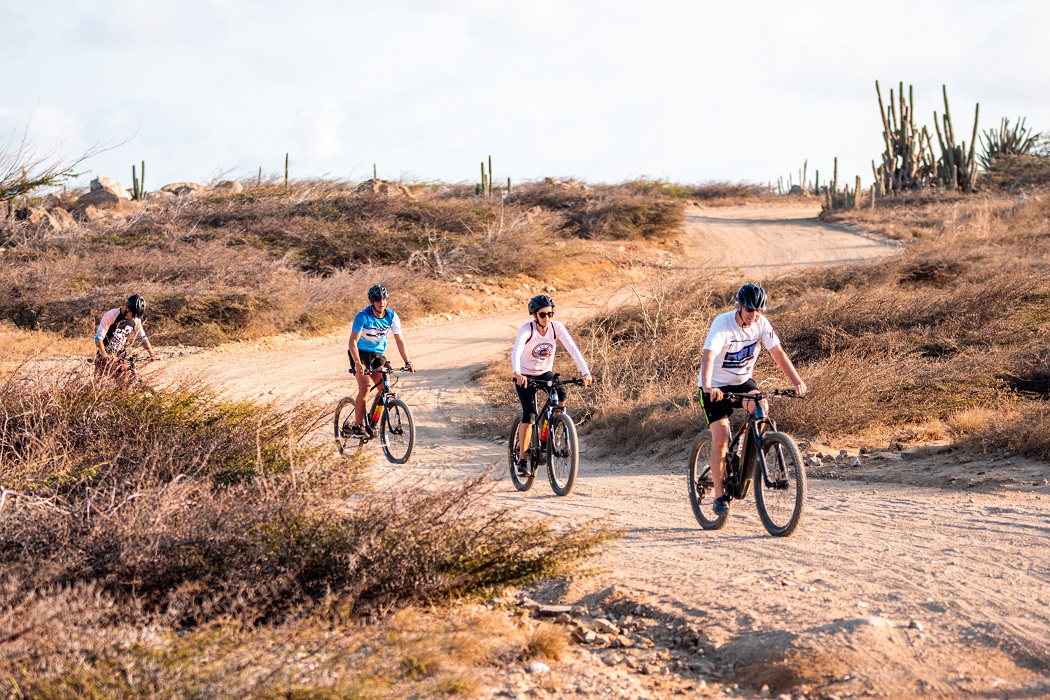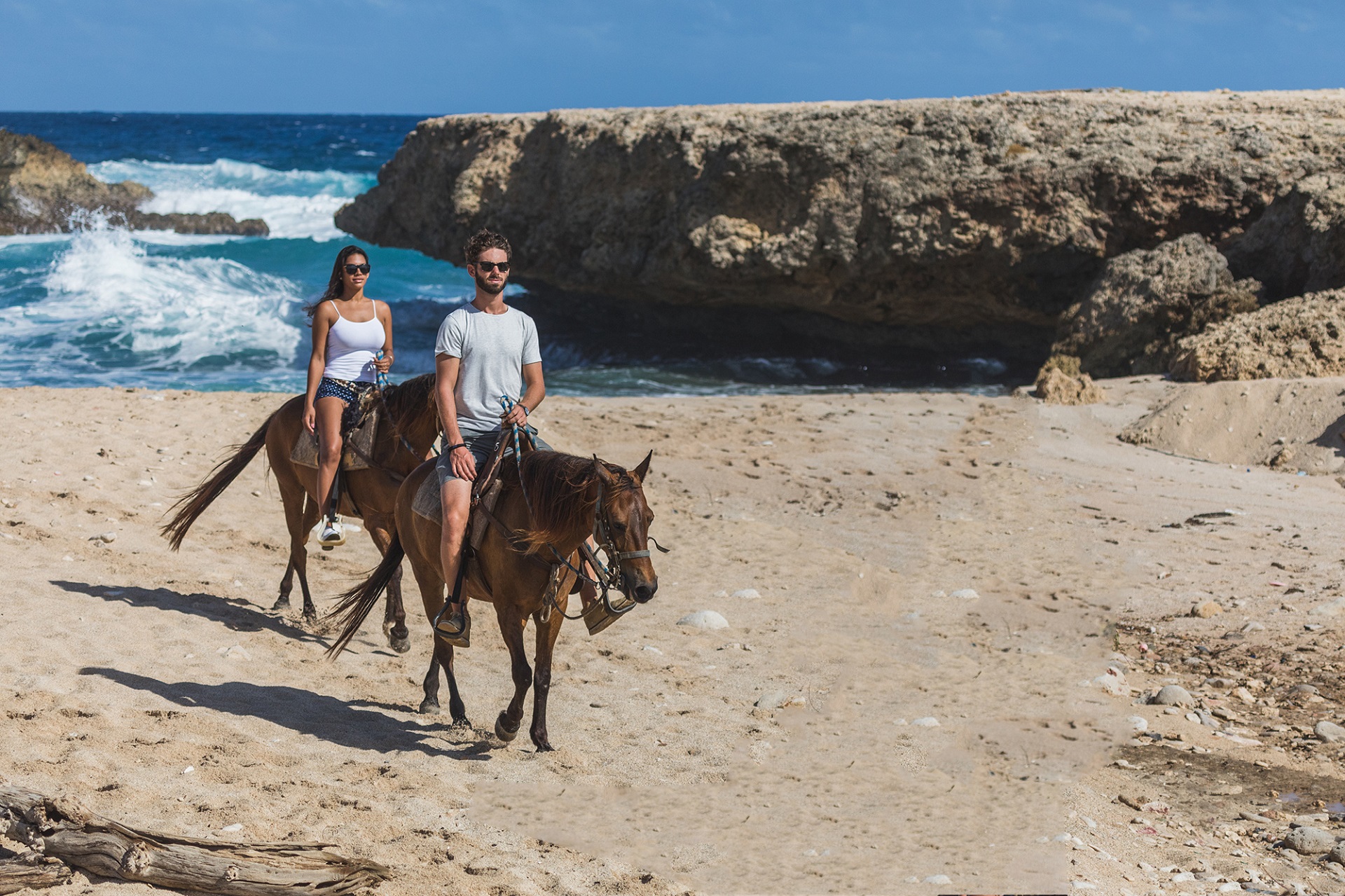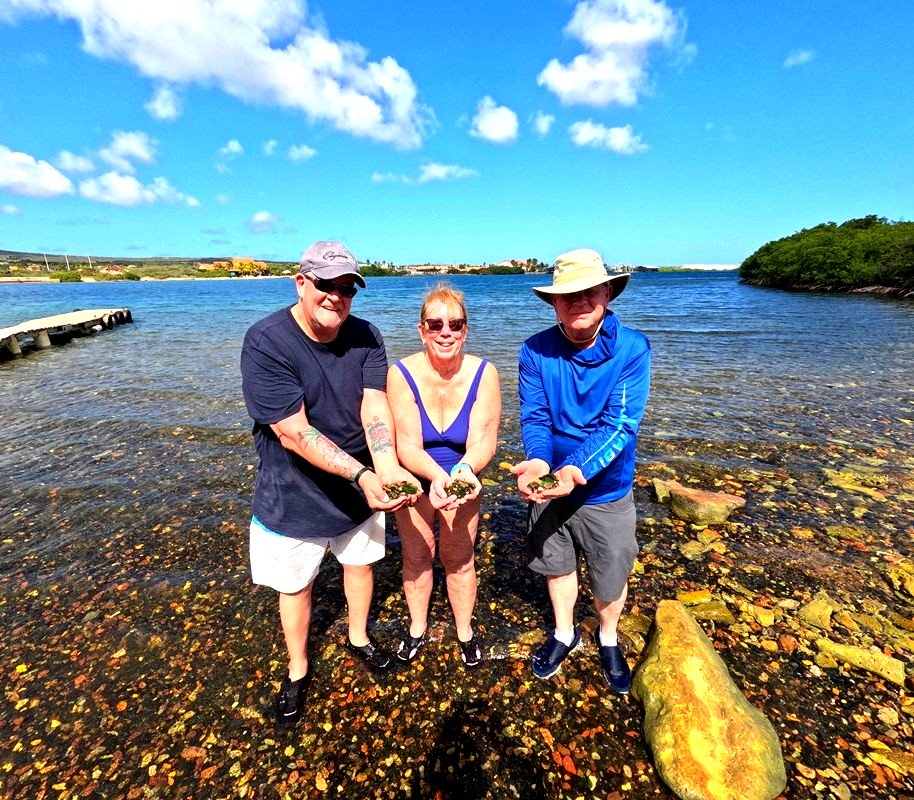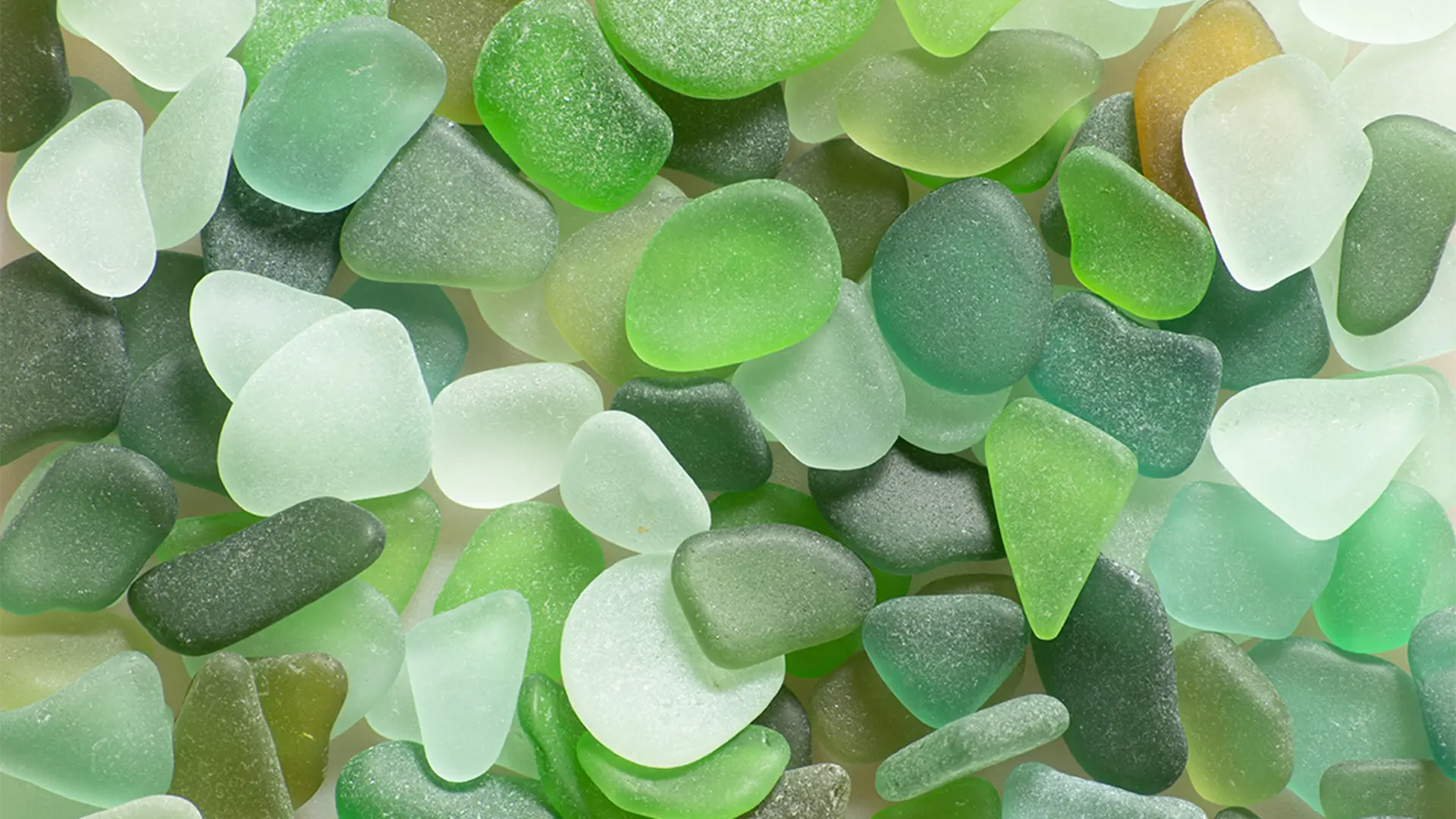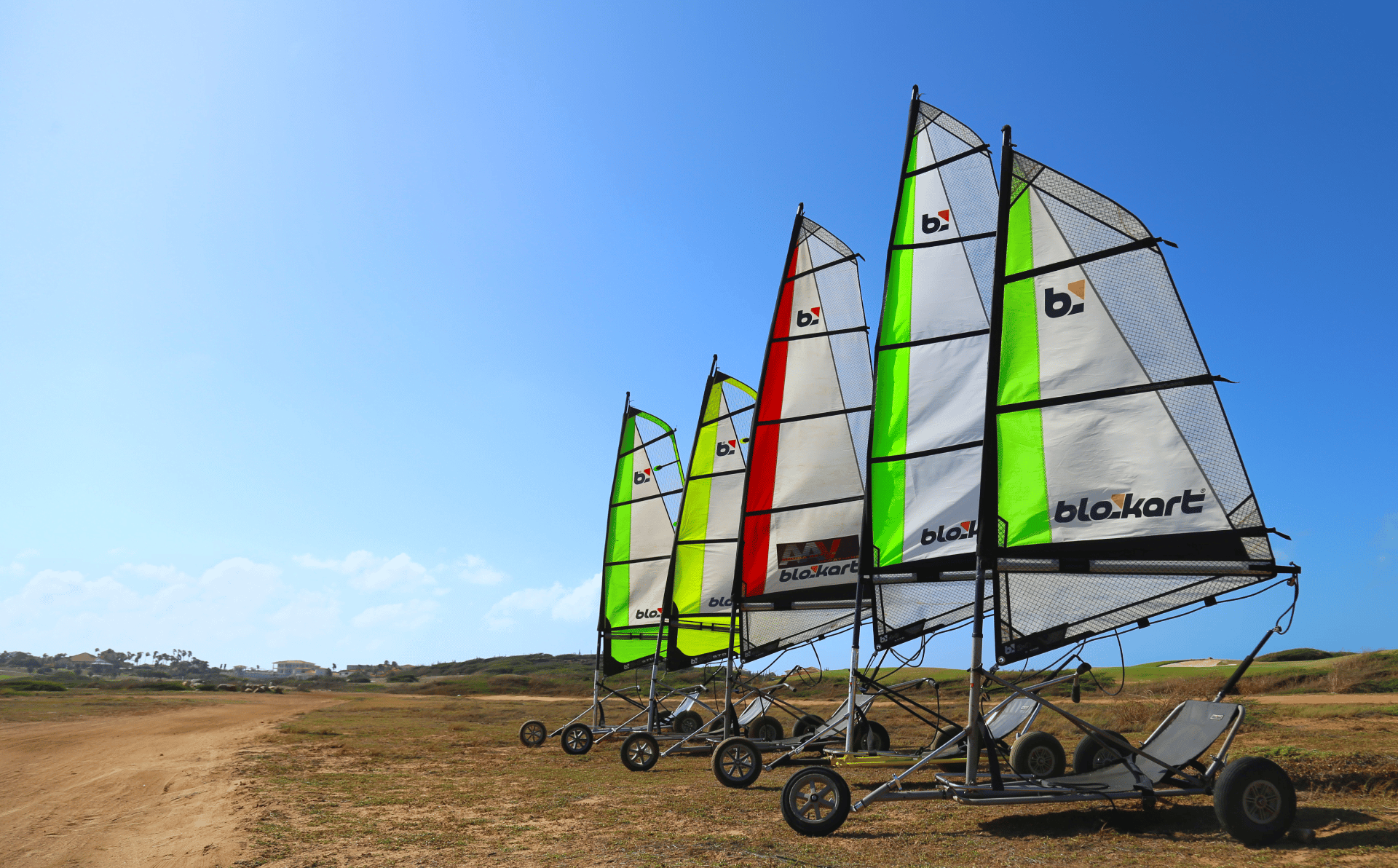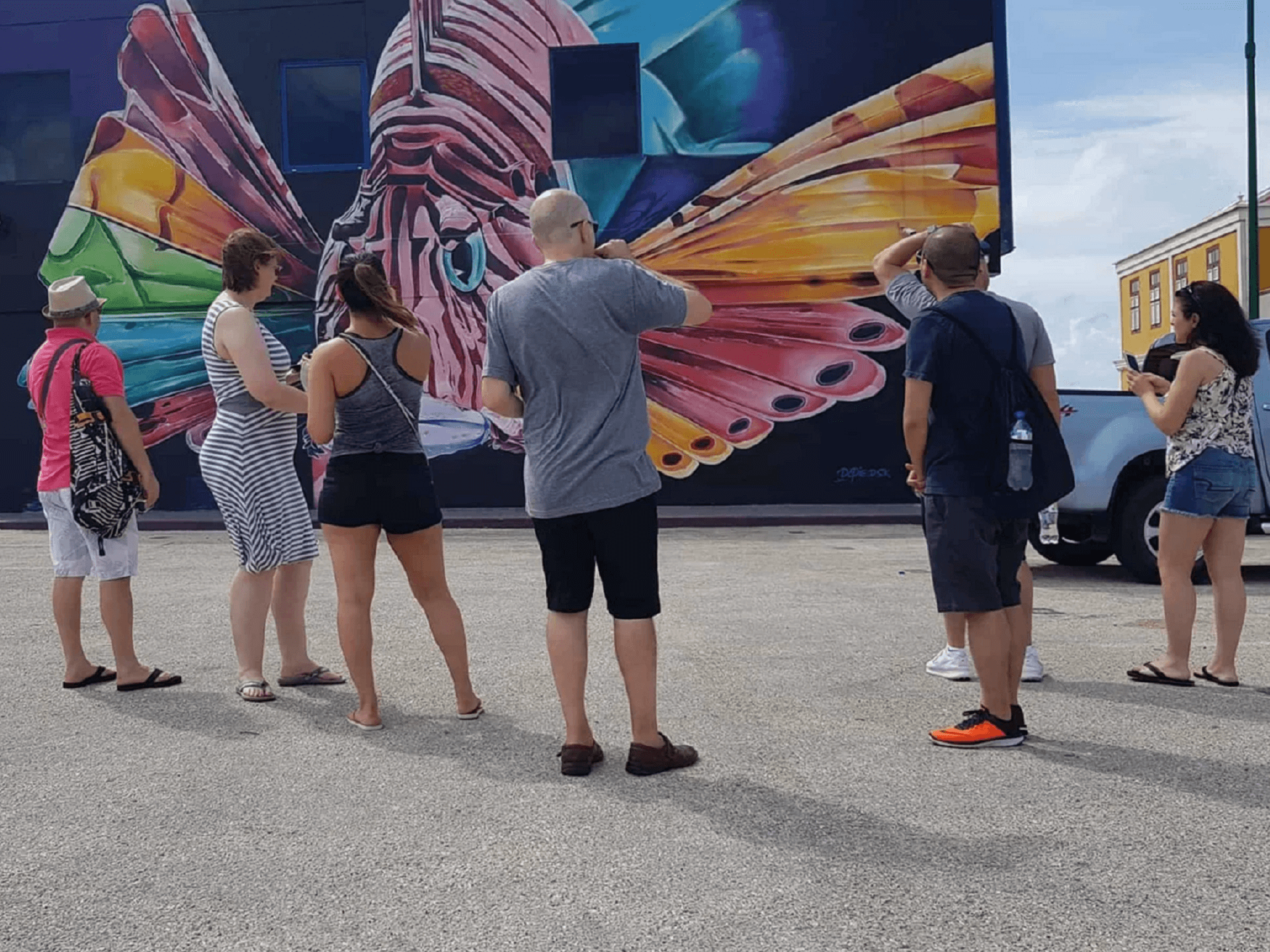Groene leguaan (Yuwana)
Green Iguana (Yuwana)
These animals are especially recognizable by their throat flap, also called a dewlap. The scale on their cheek is also characteristic of this species of iguana. Iguanas do not make sounds but use head-nodding as a form of communication. From head to tail, a fringe-like crest runs along their back.
Latin name: Iguana iguana
Length: 150 to 200 centimeters including tail
Weight: Between 2 and 9 kilograms
Color: Adult iguanas have a greenish-gray color, but young iguanas are bright green. Young ones can also quickly change color. The color of an iguana sometimes depends on their emotions, temperature, health, environment, etc.
Reproduction: During mating season, male iguanas change color. They become lighter green and develop an orange tint on their legs. These colors help attract females. After mating, the females lay between 20 and 71 eggs in a dug-out hole in the sand. The eggs are incubated by the sun. A female iguana lays eggs only once a year.
Habitat: Iguanas often live near water and around trees (in mondi areas). They are very agile climbers and are also excellent swimmers and divers.
Defense mechanisms: Using their tail like a whip, biting, or using their claws. Iguanas rely heavily on their excellent camouflage. If discovered, they will drop down and run away as fast as possible.
Food: Iguanas eat leaves and fruits. They have the ability to choose leaves with the most nutrients.
Enemies: Humans and large birds.
Protected Species
Despite their size, iguanas are incredibly fast. They have strong legs with sharp claws, allowing them to climb very well. Iguanas are not bothered by sharp spines or thorns and can easily climb tall cacti. Despite all their abilities, iguanas are still threatened. They are heavily hunted by humans. Their meat is particularly sought after for making soup, and their eggs are also eaten. On Aruba, it is therefore prohibited to hunt iguanas.
- Tour Location: Noord, Aruba
- Tour Duration: 1 hours
- Tour Location: North Coast
- Tour Duration: 2 Hours
- Tour Location: Seaglass Island
- Tour Duration: 2.5 Hours
- Tour Location: Seaglass Island
- Tour Duration: 2.5 Hours
- Tour Location: Natural Pool
- Tour Duration: 3–4 hours
- Tour Location: San Nicolas City
- Tour Duration: 2 hours


